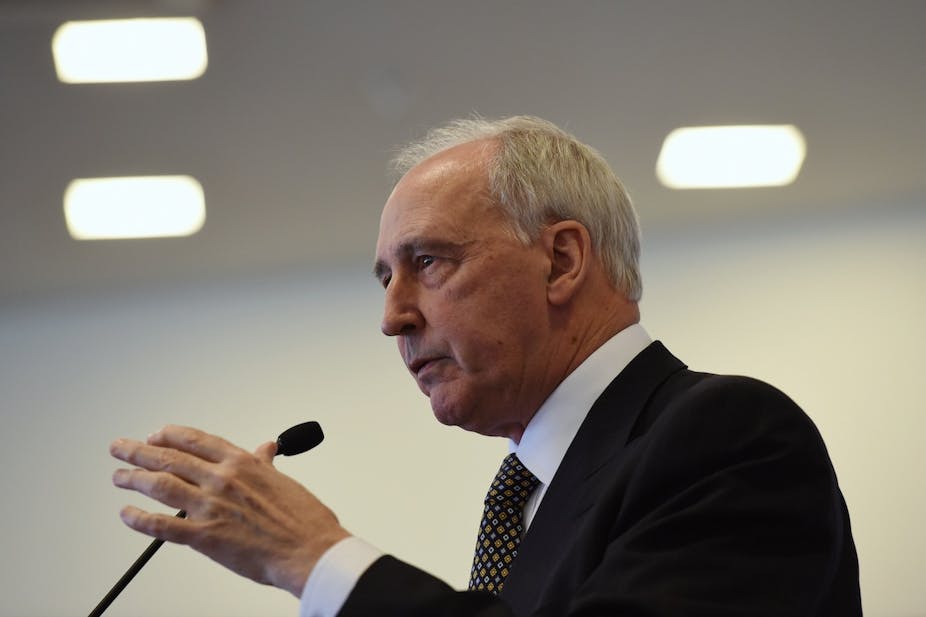Paul Keating has launched a swingeing attack on the government’s deferral of 12% compulsory superannuation, accusing it of wilfully sabotaging Australia’s savings scheme out of prejudice.
The former prime minister said the government’s connivance with the Palmer United Party to spike superannuation at 9.5% had little to do with balancing the budget this year or in the early out years, “and everything to do with cheap ideology”.
“The Liberal party has always opposed universal superannuation,” Keating said in a statement, as the opposition mounted an attack on the issue in question time.
The government-PUP deal to repeal the mining tax included putting off the move to 12% to 2025. Previously the government had said 12% would be reached in 2022. Under the Labor government the 12% would have begun in 2019.
Keating, who in government fathered the superannuation scheme, said the decision jammed compulsory super contributions at 9.5% until July 2021 – “effectively wiping out any prospect of the SG (super guarantee) ever moving beyond 9.5% without a change of government”.
“You don’t expect conservative governments to believe in much but, at least, you expect them to believe in thrift.
"The Treasurer talks of ending the age of entitlement. I gave substance to that notion 30 years ago, when I first asked Australians to provide for their own retirement – to move beyond reliance on the age pension as the default anti-destitution measure.”
Keating said this decision “puts the pension back at centre stage, as retirees find that their superannuation accumulation is not large enough to live from without pension supplementation”.
The decision ranked with the Howard government’s abandonment of the Keating government’s 15% superannuation guarantee, he said, which was designed particularly to help the 1940s baby boomers.
He said the latest decision would not only hit the baby boomer generation but more substantially generations X and Y.
“The Howard-Costello decision in 1996 cost the average Australian worker roughly $250,000 in accumulation over their working life. The cost of yesterday’s decision will be in the region of a further $100,000.”
Keating condemned as “tawdry” the argument from Tony Abbott and Clive Palmer that working people were better off with more cash in hand today than savings for tomorrow.
“They omit to say that superannuation savings represent deferred consumption, not lost consumption.
"But more than that, that their superannuation contributions become compound savings - where the earnings on their accumulations are in tax terms permitted to earn further.”
He said if Abbott’s argument about the value of cash today had substance, there would be no savings.
“If the Prime Minister’s claim were to be true in logic, it would need to be true absolutely. That is, the notion that people are better off spending and disposing of all their income than saving any part of it.”
Abbott told Parliament: “Money that would otherwise be squirrelled away in superannuation funds will instead be in the pockets of workers.
"I want to see for the next 10 years this money stay in the pockets of the workers of Australia,” he said.
“If the workers of Australia wish to invest that money in superannuation, they are perfectly free to do so.”

